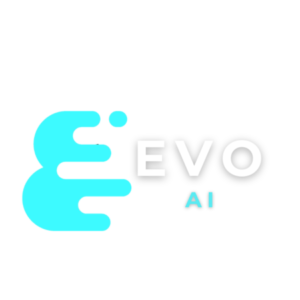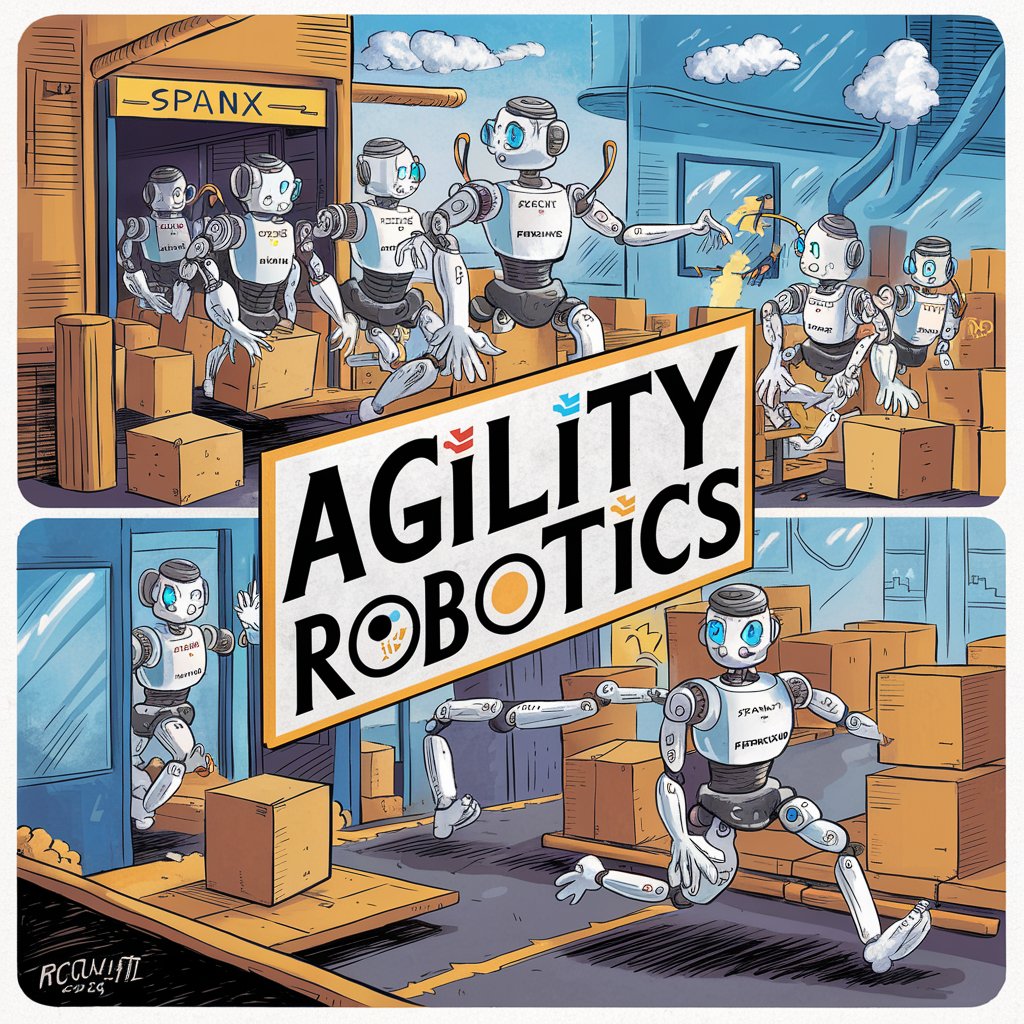
Google’s Gemma 2 Series Introduces Lightweight AI Models with 9B and 27B Parameters
-
Introduction:
Google has launched its Gemma 2 series, a set of lightweight AI models designed to provide powerful performance while being adaptable for various applications. This new series includes two models with 9 billion and 27 billion parameters, offering developers flexibility in how they integrate AI into their projects.
-
Features:
The Gemma 2 series is designed to run on Nvidia’s latest GPUs or a single TPU host in Vertex AI, targeting applications ranging from edge devices like smartphones and IoT devices to cloud-based implementations. These models are open-sourced, allowing for extensive customization and integration into diverse projects. Google has also announced plans to release a 2.6B parameter model to balance accessibility with performance.
-
Benefits:
The lightweight nature of the Gemma 2 models ensures they can be deployed on a wide range of devices, making advanced AI accessible to more developers and researchers. The open-source availability enhances collaborative development and innovation, enabling users to tailor the models to their specific needs. The series aims to provide robust AI capabilities without the heavy resource requirements typically associated with large models.
-
Technical Details:
Gemma 2 builds on the foundation of its predecessors, the 2-billion and 7-billion parameter models, with significant improvements in performance and efficiency. The models are trained to optimize for different user requests and applications, ensuring versatility in deployment. The 9-billion and 27-billion parameter options provide a choice between more compact, efficient models and those with greater computational power for more demanding tasks.
The models can be downloaded from platforms like Kaggle and Hugging Face, and researchers can access them for free through Kaggle or Colab notebooks. This accessibility promotes widespread experimentation and usage in various AI-driven projects.
-
Summary:
Google’s Gemma 2 series represents a significant advancement in AI model development, offering powerful yet lightweight options that cater to a broad spectrum of applications. By providing open-source models with varying parameters, Google facilitates innovation and customization, enabling developers and researchers to harness the full potential of AI in their respective fields.

Meta Unveils LLM Compiler: A Game-Changer in AI-Powered Code Optimization
-
Introduction:
Meta has introduced the Meta Large Language Model (LLM) Compiler, an open-source suite designed to optimize code and revolutionize compiler design. This breakthrough aims to transform code optimization, making it faster, more efficient, and cost-effective for developers.
-
Features:
The LLM Compiler includes a family of models built on Meta Code Llama, enhanced for code optimization and compiler capabilities. These models can emulate compilers, predict optimal code passes, and disassemble code. The models are available in two sizes, 7 billion and 13 billion parameters, providing robust pre-trained capabilities that can be fine-tuned for various applications.
-
Benefits:
The LLM Compiler offers significant advantages, including reducing compilation times and improving code efficiency. Its ability to handle complex optimization tasks typically reserved for human experts or specialized tools can lead to faster development cycles and more efficient software. The model’s success in round-trip disassembly and code size optimization highlights its potential in reverse engineering and legacy code maintenance.
-
Technical Details:
Meta’s LLM Compiler is trained on a massive corpus of 546 billion tokens of LLVM-IR and assembly code. It utilizes state space models (Mamba-SSM) that respond to different audio dynamics, adapting between states of an audio signal. The model achieves 77% of the optimizing potential of autotuning searches and demonstrates a 45% success rate in round-trip disassembly, with 14% exact matches when converting x86_64 and ARM assembly back into LLVM-IR. This performance underscores its capability in handling diverse and complex neural network workloads efficiently.
-
Summary:
Meta’s LLM Compiler represents a significant leap in AI-driven code optimization, offering powerful tools for developers and researchers. By making these models open-source under a permissive commercial license, Meta encourages innovation and collaboration in the field. This release not only enhances current software development practices but also sets the stage for future advancements in AI-assisted programming, challenging both academia and industry to explore new frontiers in compiler technology.
Other AI News
-
Mixhalo Integrates AI for Real-Time Multilingual Audio Streaming at Live Events
Mixhalo, an advanced live event audio streaming platform, has introduced a new feature, Mixhalo Translate, that utilizes AI to provide real-time audio translations directly to attendees’ smartphones. The system integrates the company’s ultra-low latency streaming technology with AI-generated translations, aiming to enhance the experience at conferences and live events. This development addresses the outdated methods of event interpretation, which have remained largely unchanged since the 1990s. Mixhalo Translate supports interpretations and transcriptions in 50 languages, enabling seamless communication for a diverse audience through a dedicated app.
Mixhalo’s innovation builds on its established success in delivering high-quality, real-time audio to event-goers, initially focusing on live concerts. The platform has since expanded its applications to major sports events like MLB, NBA, NHL, and Nascar. The introduction of Mixhalo Over Cellular and Mixhalo Rodeo in 2021, utilizing 5G and venue Wi-Fi respectively, marked significant advancements. Although the AI partner for Mixhalo Translate hasn’t been disclosed, the feature represents a major step forward in event accessibility and engagement, highlighting the evolving capabilities and integration of AI in live event settings.
-
Google Integrates Gemini AI with School Accounts for Enhanced Student Learning
Google has announced the integration of its AI technology, Gemini, with school accounts, providing teen students access to advanced AI tools previously available only through personal accounts. This initiative aims to prepare students for a future where generative AI plays a significant role by offering real-time feedback to enhance learning. The company assures that data from student interactions with Gemini will not be used to train AI models and emphasizes responsible implementation by incorporating guardrails to prevent inappropriate content. Additionally, Gemini will promote critical thinking and information literacy through its double-check feature.
Alongside Gemini, Google is launching the Read Along in Classroom feature globally, which helps students improve their reading skills with real-time support and tailored reading activities based on their grade level or phonics skills. Educators will gain insights into students’ reading accuracy, speed, and comprehension, and have new tools for creating, managing, and sharing interactive lessons. These enhancements also include the ability to mark assignments as missing or complete and perform bulk scoring actions, thereby streamlining educational workflows and providing more personalized learning experiences for students.
-
Emergence Aims to Revolutionize Automation with Advanced AI Agents
Emergence, a new generative AI startup co-founded by former IBM AI leaders, has emerged from stealth with $97.2 million in funding from Learn Capital and additional credit lines exceeding $100 million. The company is developing an agent-based system capable of automating tasks typically performed by knowledge workers. This system leverages both first- and third-party generative AI models like OpenAI’s GPT-4. The core focus is on advancing the capabilities of AI agents in planning, reasoning, and self-improvement, aiming to overcome current limitations in complex task automation. Emergence’s flagship project, Agent-E, is designed to automate various tasks, including form filling and online shopping, with early versions already trained on synthetic and human-annotated data.
Emergence has also introduced an “orchestrator” agent, which acts as an automatic model switcher for workflow automations. This orchestrator selects the most appropriate AI model for specific tasks, such as writing an email, based on factors like model capabilities and cost. The orchestrator can also create and verify workflows by integrating multiple models. Emergence’s unique approach includes a strong emphasis on R&D, with a dedicated lab to explore AI agent advancements. The startup has formed strategic partnerships with companies like Samsung and Newline Interactive to integrate its technology into future products. Despite the competitive landscape and challenges in AI development, Emergence is positioning itself as a leader in AI agent research and application, with a vision to transform enterprise workflows through advanced automation.
-
Etched Develops Specialized AI Chip Exclusively for Transformer Models
Etched, a startup founded by Harvard dropouts Gavin Uberti and Chris Zhu, along with Robert Wachen and former Cypress Semiconductor CTO Mark Ross, has emerged with a mission to build an AI chip dedicated solely to running transformer models. This chip, named Sohu, is an application-specific integrated circuit (ASIC) designed specifically for transformers, which are the backbone of many generative AI models like OpenAI’s GPT-4, Google’s Gemini, and Anthropic’s Claude. The Sohu chip promises to deliver significantly better performance for transformer models compared to general-purpose GPUs, being an order of magnitude faster and cheaper than Nvidia’s next-generation Blackwell GB200 GPUs. This specialization allows for streamlined hardware and software, focusing entirely on transformer models, thus eliminating unnecessary components and software overhead.
Etched is entering the AI chip market at a critical time, where the demand for more efficient and cost-effective AI infrastructure is soaring. Sohu aims to address the increasing power consumption and environmental impact of data centers running AI models. With its streamlined design, Sohu reduces energy consumption and promises substantial cost savings for businesses relying on generative AI technologies. The startup has successfully raised $120 million in Series A funding, with notable investors like Peter Thiel and GitHub CEO Thomas Dohmke. Despite the competitive landscape, Etched’s focus on transformers and its robust funding position it well to make a significant impact in the AI chip industry, with plans to launch the Sohu Developer Cloud for broader accessibility and adoption.
-
EvolutionaryScale Secures $142M to Revolutionize Protein Engineering with AI
EvolutionaryScale, a biotech startup, has raised $142 million in a seed round led by former GitHub CEO Nat Friedman, Daniel Gross, and Lux Capital, with significant backing from Amazon and Nvidia’s corporate venture arm, NVentures. The startup has introduced ESM3, an advanced AI model designed to generate novel proteins for use in drug discovery and materials science. The co-founders, Alexander Rives, Tom Sercu, and Sal Candido, previously worked on protein-generating AI models at Meta’s AI research lab, FAIR. ESM3 can reason over the sequence, structure, and function of proteins, similar to Google DeepMind’s AlphaFold, and is available for non-commercial use through EvolutionaryScale’s Forge developer platform.
The startup aims to commercialize its technology by partnering with pharmaceutical companies and offering revenue-sharing models for breakthroughs discovered using ESM3. EvolutionaryScale plans to integrate ESM3 into Amazon’s SageMaker AI platform and Nvidia’s NIM microservices, allowing customers to fine-tune the model with their own data. Despite the competition from DeepMind’s Isomorphic Labs and other AI-driven biotech firms, EvolutionaryScale’s focus on scaling model training to incorporate diverse data sets positions it to create a general-purpose AI model for broader biotech applications. The substantial funding and strategic partnerships indicate strong investor confidence in the startup’s potential to significantly impact the field of protein engineering and biotech research.
-
Created by Humans Empowers Authors to License Creative Work to AI Models with Backing from Top Investors
Created by Humans, a startup founded by Trip Adler, the former CEO of Scribd, has launched a platform allowing authors and creators to license their intellectual property directly to AI models. Backed by notable investors such as David Sacks, Garry Tan, and Walter Isaacson, the company has raised $5 million to develop its marketplace, which facilitates the sale of licensing rights for various creative works, including videos, images, music, and medical data, with a primary focus on authors and book publishers initially. The platform aims to simplify the licensing process, providing a clear framework to avoid legal battles over copyright violations in AI training.
The company’s philosophy, dubbed the Fourth Law, is inspired by Isaac Asimov’s three laws of robotics and emphasizes creators’ rights to consent, control, and compensation for the use of their work in AI models. The Fourth Law also mandates that creators be credited and referenced appropriately. Created by Humans plans to offer a dashboard for authors to track the usage and revenue generated from their licensed works. The startup envisions that this approach will revitalize the book industry by providing new revenue streams and motivations for authors to produce content, potentially surpassing the impact of e-books and audiobooks.
-
Tengo Uses AI to Simplify Public Sector Procurement Processes
Tengo, a startup created within the startup studio Hexa, is leveraging AI to streamline the complex world of public sector procurement. The company has raised €3 million (approximately $3.2 million) in a funding round led by Point Nine to develop its software-as-a-service tool that helps businesses find, evaluate, and respond to public tenders. Public tenders often involve lengthy documents and precise criteria to avoid corruption and overspending, which makes the process resource-intensive for companies. Tengo automates the identification of relevant tenders by scanning over 200 public portals in France, using AI to parse through extensive documentation and highlight key aspects and important pages.
The AI-powered platform also acts as a central repository for all tender-related activities, enabling companies to manage and collaborate on tender applications efficiently. It offers features such as real-time alerts for tender deadlines, built-in AI integrations to generate application documents, and the ability to share and comment on tenders within teams. Tengo’s technology is particularly beneficial for small and medium-sized enterprises (SMEs), which often lack the resources to compete with larger companies for public contracts. By simplifying the procurement process, Tengo aims to make public sector opportunities more accessible and manageable for a broader range of businesses, potentially fostering greater competition and innovation in the market.
-
Google Enhances Gmail with Gemini AI for Improved Email Writing and Summarization
Google has introduced a new Gemini AI side panel in Gmail, designed to assist users in writing emails and summarizing email threads. Announced at the recent Google I/O developer conference, this feature extends the functionality of Gemini AI to other Google Workspace apps, including Docs, Sheets, Slides, and Drive. In Gmail, Gemini can help draft emails, suggest responses, and provide specific information from emails or Google Drive files. This integration aims to enhance productivity by offering prompts to start queries and answering specific questions, making it easier to manage and respond to emails efficiently.
The Gemini AI side panel also brings advanced features to Google Docs, where it can help users write and refine content, summarize information, and brainstorm ideas. In Google Slides, Gemini assists in generating new slides, custom images, and summarizing presentations. For Google Sheets, it aids in tracking and organizing data, creating tables, generating formulas, and performing various tasks. In Google Drive, the Gemini panel can summarize documents and provide quick facts about projects. These features are available to Google Workspace customers with specific Gemini subscriptions, making the suite of tools more powerful and accessible for business, education, and enterprise users.
-
Axelera AI Secures $68M to Challenge Nvidia in Edge AI Chip Market
Dutch startup Axelera AI has raised $68 million in a Series B funding round to develop and expand its AI processing units (AIPUs) for edge computing applications. Led by major institutional investors such as Invest-NL Deep Tech Fund, European Innovation Council Fund, Innovation Industries Strategic Partners Fund, and Samsung Catalyst Fund, this funding round is the largest Series B in Europe’s fabless semiconductor sector. Axelera’s AIPUs are designed to handle computer vision inference workloads at the edge, providing a balance of performance, efficiency, and ease of use. The company’s Metis platform combines 12nm CMOS AIPUs with a software development kit to facilitate the creation of computer vision applications.
The Metis AIPUs feature four AI cores capable of processing multiple neural networks simultaneously or collaborating to boost throughput. These cores use proprietary digital in-memory computing technology to accelerate matrix operations, offering high energy efficiency. With the new funding, Axelera plans to take its solutions to new markets and develop products to meet the demands of next-generation AI workloads, including multimodal large language models (LLMs). The company is already shipping Metis evaluation kits to enterprises and aims to expand its reach to North America, Europe, and the Middle East, targeting sectors such as automotive, digital healthcare, Industry 4.0, retail, robots and drones, and surveillance.
-
Stability AI Secures Critical Funding from Sean Parker and Greycroft Amid Financial Struggles
Stability AI, known for its generative AI model Stable Diffusion, has secured new funding from investors including Sean Parker, Greycroft, Coatue Management, and others, with Parker joining as executive board chairman. The infusion of capital comes at a crucial time as the startup faces financial difficulties and mounting debts. Stability AI had previously risen to prominence with its open-source image-generating model but has since struggled with financial mismanagement, leading to significant debt and a projected low revenue for 2023. The company’s new CEO, Prem Akkaraju, and the board aim to steer Stability AI back on track by focusing on commercializing their technology and expanding their offerings.
The new funding deal, reportedly involving $80 million from investors and a significant debt forgiveness arrangement, aims to relieve Stability AI from its financial obligations and pave the way for future growth. Despite losing key talent and facing legal challenges over copyright infringement, the company plans to enhance its managed image, video, and audio pipelines, build custom enterprise models, and provide APIs for various applications. Stability AI remains committed to its open-source principles, with Parker emphasizing the ongoing development of open-access models to benefit the broader community and push the boundaries of generative media technology.
-
EasyTranslate Blends Human Expertise with AI to Revolutionize Translation Services
EasyTranslate, a content translation company established in 2010, is transitioning from a human service-based model to an AI-driven platform called HumanAI. This innovative platform integrates large language models (LLMs) with human expertise to enhance translation accuracy and efficiency. Unlike typical machine translation services that involve extensive human editing, HumanAI uses short-term memory in LLMs to better understand context and generate more accurate translations. This hybrid approach significantly reduces translation times and costs, involving human intervention only when necessary. The platform employs a combination of LLMs, including those from OpenAI, along with its proprietary algorithms and customer data to deliver customized translations, particularly excelling in creating content-specific English variations.
HumanAI’s capability to vectorize content into a database and perform semantic searches allows it to maintain contextual accuracy across various types of content, from marketing copy to financial reports. This method, known as retrieval-augmented generation, ensures that translations preserve the intended meaning and nuances of the source material. EasyTranslate claims that HumanAI can lower translation costs by up to 90%, offering services at €0.01 per translated word. With clients like Wix and Monday.com, the platform aims to maintain a competitive edge over pure AI-based solutions by leveraging the unique strengths of human and AI collaboration. The company has raised €3 million in funding and continues to focus on enhancing its AI capabilities while incorporating human feedback to improve translation quality continually.
-
CData Secures $350M to Enhance Data Integration and AI Model Building for Enterprises
CData, a data connectivity solutions provider, has raised $350 million in growth capital to advance its tools that facilitate data integration across applications and support AI model development. The funding round, led by Warburg Pincus and Accel, values the company at over $800 million post-money. CData’s technology is designed to help large enterprises, including non-tech companies like healthcare providers and hospitality chains, seamlessly integrate data from various sources, whether on-premise or in the cloud. This integration capability is increasingly critical as companies look to leverage their proprietary data for AI workloads. CData’s connectors simplify the process of accessing and using data from diverse applications, enabling businesses to build more effective AI models.
Founded a decade ago, CData initially focused on application integration but has evolved with the rise of the API economy and cloud computing. The company’s platform includes around 270 connectors and partnerships with over 100 independent software vendors, such as Google, Salesforce, and Informatica. These partnerships enhance the user experience by providing more straightforward integrations. CData’s approach addresses the inconsistencies and complexities of working with different APIs, allowing developers to interact with various data sources through a unified interface. The company’s robust customer base and strategic focus on both legacy integration and modern AI applications position it well to capitalize on the growing demand for intelligent data connectivity solutions.
-
Captions Introduces AI Edit Feature for Automated Video Enhancements
Captions, a video editing app supported by investors such as a16z, Kleiner Perkins, and Sequoia Capital, has launched an innovative AI edit feature. This new functionality allows users to take an unedited video and automatically add custom graphics, zooms, music, sound effects, transitions, and motion backgrounds based on the content. The feature is designed primarily for vertical videos featuring a single person speaking. Users can also create videos using AI avatars generated from short prompts, which can then be enhanced with the AI edit tool to produce a polished video in minutes.
Gaurav Misra, co-founder and CEO of Captions, explains that the goal is to simplify the video creation process, making it easier for people to convey their messages. The platform offers three main tools: a camera toolkit for recording, AI-powered editing tools for manual videos, and a generative tier that creates videos without recording. Captions currently provides 12 AI characters and plans to expand this selection, aiming to let users create their own AI characters in the future. This feature set is particularly useful for sales, marketing, and communication channels, enabling consumer-focused companies to create high-quality content quickly and efficiently.
-
Dappier Launches Marketplace to Enable Publishers to Monetize Content for AI Training
Dappier, an early-stage startup, has announced the launch of a marketplace designed to help publishers monetize their content by selling it to developers of large language models (LLMs). The company, which has secured a $2 million seed round led by Silverton Partners, aims to create a payment infrastructure that ensures content creators are compensated when their material is used for training AI models. Co-founder and CEO Dan Goikhman explains that Dappier’s platform allows media companies and information providers to set a price for their content, which can then be licensed on a per-query basis or monetized through ad-supported models. This approach provides an alternative to the current practices where companies like OpenAI scrape content without permission.
Dappier facilitates this process by enabling customers to connect to a content store via an RSS feed, which is then used to build a model using retrieval-augmented generation (RAG). Publishers can set prices for accessing their content through the marketplace, similar to setting CPM ad rates, or offer premium AI-powered search engines. This model offers a new revenue stream for publishers, particularly at a time when traditional website advertising is proving insufficient. The marketplace could also benefit smaller publishers and newsletter platforms, providing a diversified monetization strategy. Dappier’s innovative solution represents a significant step toward ensuring fair compensation for content creators in the evolving digital landscape.
-
Orby AI Secures $30M to Revolutionize Enterprise Automation with Generative AI
Orby AI, a startup specializing in generative AI for automating complex business processes, has raised $30 million in a Series A funding round. The company introduced its “large action model” technology, which uses generative AI to learn and automate intricate workflows. Unlike traditional robotic process automation (RPA) solutions that rely on predefined rules, Orby’s platform employs multi-modal inputs, such as screenshots, clicks, and keystrokes, to train its models. These inputs enable the AI to generate scripts and code to automate tasks while involving human employees for feedback and handling edge cases.
The funding will be used to continue product development and expand Orby’s market presence, focusing on large enterprise customers across various industries, including technology, insurance, consumer goods, and real estate. One notable application is automating the auditing of expense receipts for Fortune 500 companies, significantly reducing the time required for each audit. Orby AI aims to enhance productivity and efficiency in back-office functions like finance, accounting, HR, and operations. The company’s vision is to create a collaborative environment where AI complements human efforts, ultimately making human work more valuable and impactful. Investors are optimistic about the potential of Orby’s generative AI approach to transform enterprise workflows.
-
Formation Bio Secures $372M to Enhance AI-Driven Drug Development
Formation Bio, a startup focused on leveraging AI for drug development, has raised $372 million in a Series D funding round led by Andreessen Horowitz, with participation from Sanofi, Sequoia, Thrive, Emerson Collective, Lachy Groom, SV Angel Growth, and FPV Ventures. This latest funding brings the company’s total raised to over $600 million. Formation Bio, originally known as TrialSpark, was co-founded by Benjamine Liu and Linhao Zhang in 2016. The company aims to streamline the drug development process, which traditionally takes 10 to 15 years and costs up to $5.5 billion per drug. By using AI to enhance clinical trials and drug development, Formation Bio seeks to improve efficiency in study startup, participant recruitment, and data management.
The startup’s technology includes deploying AI to generate patient recruitment materials and adverse event reports, and fine-tuning AI models to assist drug development teams with R&D decisions and predict drug toxicity, tolerability, and efficacy. Recently, Formation Bio partnered with OpenAI and Sanofi to design customized AI solutions for drug development, with OpenAI providing AI capabilities and Sanofi contributing proprietary data. Formation Bio has three drug candidates in its clinical pipeline, including treatments for chronic hand eczema, sensory neuropathy, and knee osteoarthritis, with the eczema treatment currently in phase 3 trials. This significant funding highlights the growing importance and potential of AI in revolutionizing the drug development industry.
-
Meta’s AI Labeling Mistakes: Real Photos Tagged as AI-Generated
Meta’s automated system for labeling photos as “Made with AI” is mistakenly tagging real photos, causing frustration among photographers. This labeling system, introduced to help users differentiate between real and AI-generated content, has incorrectly flagged photos uploaded by notable users such as a former White House photographer and a professional cricket team. The error is believed to stem from basic photo editing processes, such as cropping and exporting images, which might alter metadata that Meta’s AI relies on to detect authenticity.
The issue raises concerns about the effectiveness of Meta’s AI moderation capabilities, especially as the 2024 election season approaches. Accurate differentiation between real and AI-generated content is crucial to prevent misinformation. Meta’s current system, which mislabels genuine photos due to simple edits, questions the reliability of AI in content moderation. This situation highlights the ongoing challenges in developing AI systems that can accurately interpret and manage digital content, emphasizing the need for continuous improvement and oversight.
-
Unbabel Among First AI Startups to Secure Millions of GPU Hours on EU Supercomputers
Unbabel, a Portugal-based AI startup, has been announced as one of the four winners of the European Union’s “Large AI Grand Challenge.” This competition, aimed at accelerating homegrown AI innovation, awarded the winners a combined total of €1 million in prize money and, more crucially, 8 million GPU hours on the EU’s high-performance computing supercomputers over the next year. The allocated GPU hours are intended to dramatically reduce model training times from years to weeks. The other winning startups include France’s Lingua Custodia, Belgium’s Textgain, and Latvia’s Tilde. Each of these companies focuses on different aspects of natural language processing and AI-driven solutions, contributing to diverse applications such as financial document processing and social media analysis.
Unbabel, known for blending machine translation with human expertise, has raised nearly $100 million and is backed by Y Combinator. This substantial GPU allocation will support the development of their AI models, particularly for customer service and productivity use cases. The initiative, managed by the European High Performance Computing Joint Undertaking (EuroHPC JU), is part of a broader strategy to enhance the EU’s AI capabilities and ensure ethical and responsible AI development. The winning startups are expected to release their developed models under open-source licenses or publish their research findings, contributing to the collective advancement of AI technology within the EU.
-
Synthflow Raises $7.4M to Empower SMEs with No-Code AI Voice Assistance
Synthflow, a Berlin-based startup, has secured $7.4 million in seed funding to advance its no-code AI voice assistance platform tailored for small and medium-sized enterprises (SMEs). The funding round, led by Singular and supported by existing investor Atlantic Labs and founders of Krisp AI, brings the company’s total raised to $9.1 million. Synthflow’s platform aims to automate repetitive tasks such as appointment scheduling and customer inquiries, which are crucial for resource-strapped businesses. Since its launch in December 2023, the company has experienced double-digit monthly growth and is approaching 1,000 customers, reflecting the strong demand for generative AI tools that offer productivity enhancements.
Synthflow’s no-code tool allows non-technical users to design and deploy voice agents that can handle tasks like running through FAQs or extracting information from customers. The platform initially focused on English-language call handling but has since expanded to include German and French versions, with plans to further enhance its capabilities and integrations with third-party software. CEO Hakob Astabatsyan emphasizes that the goal is not to replace human jobs but to increase efficiency and productivity by automating simpler tasks, thereby freeing up human workers for more complex inquiries. The funding will be used to fuel further research and development, aiming to broaden the platform’s utility and appeal to a wider range of SMEs.
-
Andrew Ng Aims to Raise $120M for Second AI Venture Fund
Andrew Ng, a prominent figure in the AI community, plans to raise $120 million for his AI Fund’s second initiative, AI Venture Fund II. A recent SEC filing revealed that the fund has already secured $69.75 million from 13 partners, leaving around $50 million yet to be raised. Ng, known for his roles in founding Google Brain, co-founding Coursera, and his recent appointment to Amazon’s board, launched the AI Fund in 2018 with $175 million to support small teams working on AI-driven solutions. The fund focuses on providing seed and Series A stage funding, allowing startups to develop their projects with the backing of Ng’s extensive professional network.
The AI Fund’s first initiative included investments from major backers like Greylock Partners, New Enterprise Associates, Sequoia Capital, and SoftBank Group, and supported 38 portfolio companies, including WhyLabs and Baseten. Despite the reduced size of AI Venture Fund II compared to its predecessor, it indicates a continued commitment to fostering AI innovation. This fundraising effort occurs amid a cooling period for generative AI investments, with early-stage dealmaking in the sector having declined significantly. Recent surveys highlight executive caution regarding generative AI’s productivity gains and potential risks, reflecting the challenges of implementing AI at scale.
-
Dust Secures $16M Series A to Enhance Enterprise AI Assistants with Internal Data Integration
French startup Dust has raised $16 million in a Series A funding round led by Sequoia Capital, bringing its total funding to $21 million. Dust enables companies to create custom AI assistants connected to their internal data and documents, such as Notion pages, Google Drive files, Intercom conversations, and Slack channels. Unlike typical consumer-facing AI tools, Dust’s platform is designed for enterprise use, allowing multiple specialized assistants to handle various tasks within different departments. For instance, support teams can use assistants that access knowledge bases and past interactions to provide relevant answers, while HR teams can automate responses to common policy questions and generate job descriptions.
Dust’s approach focuses on building a product that is easy for employees to use, leveraging familiar conversational interfaces. The startup integrates with major language models, including OpenAI’s GPT, Anthropic’s Claude, Mistral, and Google’s Gemini, giving users flexibility in choosing the best model for their needs. Dust aims to make generative AI a daily internal communication tool, with significant adoption by late-stage tech companies like Qonto, Alan, Pennylane, and PayFit. These companies report high usage rates of Dust’s assistants, demonstrating the platform’s potential to improve efficiency and productivity across various business functions.
-
TechWolf Raises $43M to Revolutionize Internal Talent Management with AI
TechWolf, a Ghent-based startup, has raised $43 million in a Series B funding round led by London-based Felix Capital, with participation from SAP, ServiceNow, Workday, Acadian Ventures, Fortino Capital Partners, Notion Capital, SemperVirens, and 20VC, alongside AI leaders from DeepMind and Meta. The startup has developed an AI engine that processes data from internal workflows to provide managers and internal recruiters with insights into employees’ skills and interests. This technology aims to enhance internal talent management by accurately identifying employee capabilities and connecting them with suitable projects and training opportunities.
The company, founded in 2018 by Andreas De Neve, Jeroen Van Hautte, and Mikaël Wornoo, initially attempted to build an external recruitment platform but pivoted to focus on internal talent management after realizing the significant need for AI-driven insights within organizations. TechWolf’s platform integrates with various systems used by employees, such as project trackers, documentation systems, and research repositories, to infer skill sets from the generated data. This approach allows organizations to better understand their workforce, form flexible teams, and respond effectively to changing project requirements. The recent funding will be used to expand TechWolf’s business, reflecting the growing demand for AI solutions in talent management.
-
Rocketlane Secures $24M to Enhance Professional Services Automation with AI
Rocketlane, a SaaS startup headquartered in Utah and Chennai, has raised $24 million in Series B funding to enhance its professional services automation (PSA) platform with AI capabilities. The round was co-led by 8VC, Matrix Partners India, and Nexus Venture Partners. Rocketlane’s platform aims to unify and streamline various tools used by professional services teams, including time tracking, resource management, project accounting, and document collaboration, into a single modern PSA solution. Founded in April 2020 by Srikrishnan Ganesan, Vignesh Girishankar, and Deepak Bala, Rocketlane initially focused on customer onboarding but has since expanded to address broader needs within professional services.
The startup plans to use the new funding to introduce conversational AI that can analyze client meetings for feedback, develop AI templates for emails and documents, and enhance its customer portal with a website builder-like experience. Rocketlane’s platform is designed to help professional services teams deliver projects on time and within budget by reducing reliance on multiple tools and improving project health reporting. With a customer base that includes OpenGov, LivePerson, Fivetran, Personio, and Icertis, Rocketlane has seen significant growth, with over 500 paying customers and a substantial portion of its revenue coming from the U.S. The company also plans to expand its presence in the U.S. and Europe by increasing its leadership and sales teams.
-
Illumex Raises $13M to Simplify Data Preparation for AI Models Using GenAI
Illumex, an Israeli startup founded by Inna Tokarev-Sela, a former VP of AI at Sisense, has secured $13 million in funding to ease the process of preparing high-quality data for large language models (LLMs) using generative AI. Recognizing the challenge companies face in organizing and readying data for AI applications, Illumex aims to automate this process by associating an organization’s business logic with relevant data. The company employs a combination of generative AI, graph databases, and relational databases to create a comprehensive “data fabric,” which businesses can use to train LLMs and develop other applications. This approach not only prepares data for AI models but also builds applications based on this data, making it more accessible for end users.
Illumex’s platform integrates with various enterprise systems, such as databases, data warehouses, CRM systems, and SAP enterprise financial systems, to provide a detailed inventory of an organization’s data landscape. By understanding the semantics of the entire data environment, Illumex ensures that generative AI can operate with high accuracy, precision, and context awareness. The platform also supports existing communication tools like Teams, Slack, and Google Meet, making it user-friendly. With customers in highly regulated industries like financial services and pharmaceuticals, Illumex plans to use the new capital to expand its team and enhance its platform. The funding round was led by Cardumen Capital, Amdocs Ventures, and Samsung Ventures, with additional participation from several other investors.
-
Apple Abandons Integration of Meta’s AI Models Due to Privacy Concerns
Apple has decided not to integrate Meta’s AI models into its devices due to privacy concerns, according to a Bloomberg report. Initially, Apple had brief discussions with Meta in March about a potential partnership to incorporate Meta’s AI technology into Apple’s products. However, Apple shelved the idea, primarily due to concerns over Meta’s track record on privacy and the potential negative impact on Apple’s brand image. This decision aligns with Apple’s consistent criticism of Meta’s privacy practices and its emphasis on safeguarding user data.
Earlier this month, Apple launched its own AI features under the brand name Apple Intelligence and announced a partnership with OpenAI to enable iPhone users to utilize ChatGPT for various queries. This partnership is not exclusive, and Apple remains open to integrating other AI models, including Google’s Gemini, as confirmed at its Worldwide Developers Conference (WWDC). Meanwhile, Meta continues to rely on its suite of applications—Instagram, WhatsApp, Facebook, and Messenger—to reach billions of users globally. Recently, Meta also introduced its AI chatbot to users in India, its largest market.
-
SoftBank and Tempus Form Joint Venture to Bring AI-Powered Healthcare to Japan
SoftBank Group has announced a joint venture with Chicago-based health tech company Tempus to develop AI-powered personalized medical services in Japan, starting with oncology. The new entity, named SB Tempus, aims to address cancer, the leading cause of death in Japan, by leveraging advanced genomic testing and data analysis. SoftBank’s founder, Masayoshi Son, highlighted this initiative as part of his broader AI ambitions during a press conference, emphasizing the potential of AI to revolutionize healthcare by providing precise and context-aware medical insights.
The partnership builds on SoftBank’s previous investment of $200 million in Tempus earlier this year. Tempus, known for its genomic testing and data analytics, will bring its expertise to Japan through SB Tempus, offering services like clinical sequencing, patient data organization, and real-world data business development. The joint venture will collect and analyze genetic data from hospitals and universities across Japan to train AI models, aiming to enhance the accuracy of personalized treatments. With both companies holding a 50% stake in the venture, SoftBank plans to invest approximately $188 million. SB Tempus is set to begin operations in August, initially focusing on cancer but with plans to expand to other medical fields, including neuropsychology, radiology, and cardiology.
-
Character.AI Introduces Voice Call Feature for Conversations with AI Avatars
Character.AI, a startup backed by a16z, has launched a new feature allowing users to engage in voice calls with AI avatars. This feature supports multiple languages, including English, Spanish, Portuguese, Russian, Korean, Japanese, and Chinese. During the beta testing phase, over 3 million users made more than 20 million calls, highlighting its potential for practical applications like practicing language skills, conducting mock interviews, or enhancing role-playing game experiences. The company emphasizes a seamless calling experience with reduced latency, enabling users to switch effortlessly between calls and text chats. Additionally, the “Tap to interrupt” option lets users manage the AI’s talking.
The introduction of voice calls builds on Character.AI’s previous feature, Character Voices, which allowed users to hear AI characters speak in one-on-one chats. With a library of over 1 million user-generated voices, the platform offers a diverse range of interactive experiences. Despite recent complaints on Reddit about AI character personality changes, Character.AI maintains that these were part of tests affecting a subset of users. This new feature positions Character.AI to compete with other chatbot platforms, including Google’s upcoming customized chatbot platform, by offering a more interactive and immersive user experience.
-
Resemble AI’s Detect-2B Model Achieves 94% Accuracy in Detecting AI-Generated Audio
Resemble AI has announced the release of its next-generation AI audio detection model, Detect-2B, which boasts a 94% accuracy rate in identifying AI-generated audio. Detect-2B builds upon the foundation of the original Detect model by utilizing a series of pre-trained sub-models and fine-tuning techniques to examine audio clips for signs of AI generation. The model focuses on identifying artifacts or accidental sounds often present in real audio recordings but typically absent in AI-generated ones. This approach enables Detect-2B to predict the extent of AI involvement in an audio clip without requiring retraining for each new clip.
The model’s architecture, based on Mamba-SSM (state space models), allows it to adapt to different audio dynamics and perform well even with poor-quality recordings. Resemble AI tested Detect-2B across various scenarios, including different languages and deepfake-generated audio, achieving over 93% accuracy in six languages. Detect-2B will be available via API, facilitating integration into various applications. This development is particularly timely, as the ability to identify AI-generated voices and videos is increasingly important in combating misinformation, especially with the upcoming 2024 U.S. Presidential Elections. Other companies, like McAfee and Meta, are also working on similar technologies to detect AI clones and add watermarks to AI-generated audio.
-
Zuckerberg Criticizes Closed-Source AI Competitors, Advocates for Open AI Development
In a recent interview, Meta CEO Mark Zuckerberg criticized closed-source AI models developed by competitors, suggesting that these companies aim to create a centralized, singular AI system akin to “creating God.” Zuckerberg emphasized the importance of open-source AI, which allows broader access and innovation by putting AI tools into the hands of many. He argued that the best AI experiences arise from diverse development efforts rather than from a single entity controlling AI advancements. Zuckerberg’s comments come amidst Meta’s own efforts to enhance its AI capabilities, including launching AI Studio software for building AI avatars on Instagram.
Zuckerberg’s remarks also touched on Meta’s strategy to integrate AI into various products, including the Ray-Ban Meta smart glasses, which blend camera and audio capabilities with AI functionalities. This approach contrasts with competitors who focus on closed AI platforms. Despite Meta’s recent setback in negotiating AI integration with Apple’s operating systems, Zuckerberg remains optimistic about the future of AI development being driven by open and diverse contributions. He envisions a future where AI and wearable technologies coexist with smartphones, gradually shifting user interactions towards more convenient and efficient methods.
-
MagicSchool Secures $15M to Integrate AI in Classrooms, Aiming to Assist Teachers and Students
MagicSchool AI, an educational technology startup based in Denver, has raised $15 million in a Series A funding round led by Bain Capital Ventures. The company focuses on developing generative AI tools to assist teachers and students in the classroom. Founded by Adeel Khan, a former educator, MagicSchool has garnered over 2 million teachers and more than 3,000 schools and districts using its platform for lesson planning, test creation, and other educational materials. With this new funding, the startup plans to expand its offerings for both educators and students, hire additional talent, and attract more customers.
The latest investment round also saw participation from notable investors like Adobe Ventures and Common Sense Media, along with individuals such as Replit founder Amjad Masad and OutSchool co-founder Amir Nathoo. MagicSchool’s tools are designed to save educators time by automating repetitive tasks and providing brainstorming assistance. The platform leverages APIs from major AI providers like OpenAI and Anthropic, conducting extensive A/B testing to ensure optimal performance. Despite initial resistance from schools due to concerns about AI, the gradual acceptance of AI technology and its benefits in educational settings have helped MagicSchool gain traction. The company’s goal is to prepare students for a future where AI is an integral part of everyday life, while also addressing the limitations of AI’s role in education.
-
Agility Robotics Deploys Humanoid Robots for Logistics Tasks in Spanx Factory
Agility Robotics has entered a formal agreement with logistics giant GXO to deploy its humanoid robots, Digit, at a Spanx factory in Georgia. This marks a significant step beyond pilot programs into actual operational deployment. Digit’s initial role will involve moving plastic totes within the factory, enhancing efficiency in material handling processes. This deployment uses a robots-as-a-service (RaaS) model, allowing GXO to lease the robots and avoid the substantial upfront costs of purchasing, while still receiving ongoing support and software updates. This arrangement follows a successful pilot program and aligns with GXO’s strategy of incorporating advanced robotics into their logistics operations.
Peggy Johnson, Agility’s CEO, emphasized the company’s focus on return on investment (ROI) and solving real-world business problems, distinguishing Agility from competitors whose results remain largely theoretical. This deployment positions Agility ahead in the market, demonstrating tangible benefits and revenue generation from humanoid robots. While still early days for the industry, and with no clear market leader, this milestone sets a new standard for the practical application of humanoid robots in industrial settings. The partnership with GXO highlights the growing role of advanced robotics in enhancing logistics and operational efficiency.
-
Hebbia Secures Nearly $100M Series B for AI-Powered Document Search, Led by Andreessen Horowitz
Hebbia, a startup leveraging generative AI to enhance document search capabilities, has raised nearly $100 million in a Series B funding round led by Andreessen Horowitz. The round, which brings the company’s valuation between $700 million and $800 million, aims to advance Hebbia’s AI technology that can search and analyze large volumes of documents, including PDFs, PowerPoints, spreadsheets, and transcripts. This technology is particularly useful for financial service firms, such as hedge funds and investment banks, allowing them to extract specific answers from dense documents quickly.
Founded in 2020 by George Sivulka while pursuing his PhD in electrical engineering at Stanford, Hebbia was inspired by the challenges faced by professionals in the financial industry who spent long hours searching for information in regulatory filings and other complex documents. The company’s AI solution addresses this pain point by significantly reducing the time required to find relevant information. With the new funding, Hebbia plans to expand its product offerings to other professional domains, including law firms, and enhance its capabilities to serve a broader range of business applications. This latest investment follows a $30 million Series A round in 2022 led by Index Ventures, with participation from Radical Ventures, bringing Hebbia’s total capital raised to over $120 million.
-
Fluently Secures $2M Seed Funding to Enhance AI-Powered English Coaching for Professionals
Fluently, a Y Combinator alum, has raised $2 million in a seed round to further develop its AI-powered English coaching platform aimed at near-native speakers looking to improve their fluency. The funding round included participation from Pioneer Fund, SID Venture Partners, and individual angels. Fluently’s platform utilizes AI to provide real-time feedback and tips on spoken English, distinguishing itself from other language learning tools by focusing on enhancing fluency for professionals who already have a good grasp of the language. Users can have Fluently record and transcribe their side of real-life calls, or practice with AI coaches tailored for different scenarios, such as daily conversations or job interview preparations.
Founders Stan Beliaev and Yurii Rebryk, both with strong backgrounds in machine learning from their time at Amazon, Google, and Nvidia, designed Fluently to meet their own needs for improving English proficiency in professional settings. The platform aims to be a one-stop solution for enhancing pronunciation, grammar, and vocabulary, with potential future features like rephrasing advice similar to Grammarly. Currently available only on macOS, Fluently is developing a Chrome extension to broaden its accessibility. The new funding will help expand the team and support marketing efforts, as the company aims to assist the 84 million non-native English-speaking professionals working in English-speaking environments.
-
Amazon Acquires Founders and Talent from AI Startup Adept to Boost AI Capabilities
Amazon has hired the founders and key team members of Adept, a startup known for developing AI-powered agents capable of performing various software tasks. This acquisition includes co-founders David Luan, Augustus Odena, Maxwell Nye, Erich Elsen, and Kelsey Szot, who will join Amazon to enhance its generative AI ambitions. Adept will continue operating independently under new CEO Zach Brock, focusing on enabling agentic AI and refining its existing technologies. This move follows Adept’s previous efforts to secure a potential acquisition by companies like Meta and Microsoft.
The talent acquisition aligns with Amazon’s strategy to bolster its AI capabilities, particularly in developing digital agents that can automate software workflows. Luan and his team will work under Rohit Prasad, former head of Alexa, who now leads a new team focused on building large language models. This integration aims to accelerate Amazon’s roadmap for creating practical AI solutions for both consumer and enterprise applications. Despite facing challenges and losing key personnel in the past, Adept managed to secure substantial investment and now seeks to leverage Amazon’s resources to bring its vision to fruition.
-
Sonia’s AI Chatbot Steps in to Assist Therapists, Offering Support for Mental Health
Sonia, a startup founded by Dustin Klebe, Lukas Wolf, and Chris Aeberli, has developed an AI-powered chatbot designed to serve as a supplementary tool for mental health support. This AI therapist, accessible via an iOS app, allows users to talk or text about various issues, applying cognitive behavioral therapy techniques. The app, which charges users $20 per month or $200 annually, provides personalized “homework” and visualizations to help users identify and manage their stressors. Sonia leverages multiple generative AI models to analyze and respond to user interactions, aiming to provide a scalable tech solution for mental health care.
Despite not having received FDA approval and lacking founders with formal backgrounds in psychology, Sonia has consulted with psychologists and is actively hiring clinical experts to enhance its services. The platform is designed to address a range of issues, from depression and anxiety to relationship problems and sleep disorders. In critical situations, such as potential violence or suicidal thoughts, Sonia’s algorithms direct users to national hotlines. The startup, backed by investors including Y Combinator and Moonfire, aims to fill the gap between the high demand for mental health services and the limited availability of human therapists, particularly in areas with inadequate access to mental care.
-
OpenAI’s ChatGPT App Now Available for All Mac Users
OpenAI has announced that its ChatGPT app is now available for all macOS users. This release follows the initial announcement ahead of Apple’s WWDC 2024, where integrations between OpenAI’s chatbot and Apple’s operating systems for iPhone, iPad, and Mac were revealed. Mac users can quickly access ChatGPT using the keyboard shortcut Option + Space, making it a convenient tool similar to Spotlight Search. The app provides a chat interface that overlays on top of the screen, offering users an expansive knowledge base just a keystroke away.
The macOS app supports various functionalities, including text and speech handling, and users can upload files, photos, and even speak directly to ChatGPT. The app also allows users to search through their past conversations. Initially rolled out to Plus subscribers, the app is now accessible to all users. This move is part of a broader collaboration between OpenAI and Apple, which will also bring ChatGPT to iPhones and iPads later this year, integrated with Siri and other AI-aided tools, powered by OpenAI’s advanced GPT-4o model. These integrations aim to enhance user experiences across Apple’s ecosystem, providing powerful AI capabilities at users’ fingertips.
-
MIT Robotics Pioneer Rodney Brooks Warns Against Overestimating Generative AI
Rodney Brooks, a renowned robotics pioneer and Panasonic Professor of Robotics Emeritus at MIT, cautions that the current hype surrounding generative AI technologies is leading to unrealistic expectations. Brooks, who co-founded key companies like Rethink Robotics, iRobot, and Robust.ai, emphasizes that while generative AI is impressive, it cannot perform all the tasks that humans can. He notes that people often generalize AI’s capabilities based on its performance in specific tasks, mistakenly attributing broader competence to it. This overestimation, Brooks argues, leads to the inappropriate application of AI technologies in scenarios where they may not be effective.
Brooks highlights his experience at Robust.ai, where someone suggested using a large language model (LLM) to direct warehouse robots. He explains that such an approach would be inefficient, as language-based commands could slow down operations compared to direct data integration with warehouse management software. Brooks advocates for focusing AI development on practical, solvable problems where robots and AI can be integrated effectively, such as controlled environments like warehouses. He also warns against the assumption that technological advancements will always follow an exponential growth pattern, as seen with Moore’s law, stressing the importance of realistic expectations and practical applications in AI development.
About The Author

Bogdan Iancu
Bogdan Iancu is a seasoned entrepreneur and strategic leader with over 25 years of experience in diverse industrial and commercial fields. His passion for AI, Machine Learning, and Generative AI is underpinned by a deep understanding of advanced calculus, enabling him to leverage these technologies to drive innovation and growth. As a Non-Executive Director, Bogdan brings a wealth of experience and a unique perspective to the boardroom, contributing to robust strategic decisions. With a proven track record of assisting clients worldwide, Bogdan is committed to harnessing the power of AI to transform businesses and create sustainable growth in the digital age.













Leave A Comment